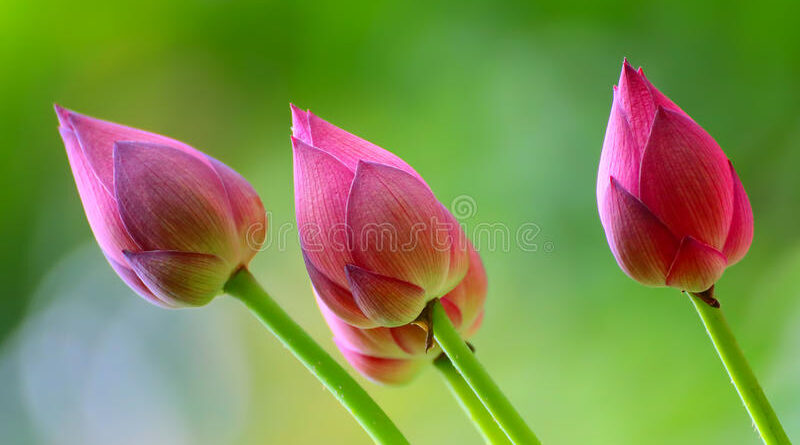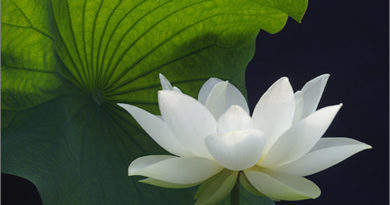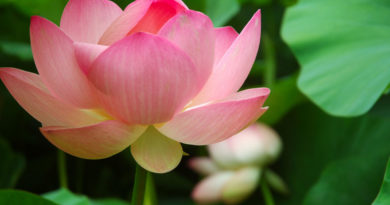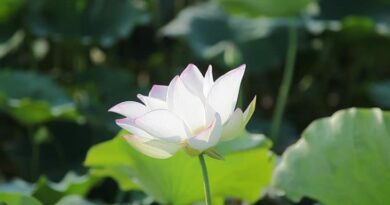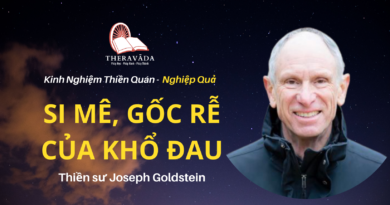DHAMMA PADETHA – 39. SIX KINDS OF DANA INDEX
DHAMMA PADETHA – SIX KINDS OF DANA INDEX
Buddhists wish to have a lot of merit. They believe that merit is truly dependable. Because of this belief, they try to gain D±na, sila, and bh±vana merits, which are within their reach. They perform D±na meritorious deeds continuously especially in conformity with the saying: “charity and libation-water being always in hand.” They also wish to know the benefits of many kinds of D±na they perform. That is why Lord Buddha, on being asked by a certain deity, had discoursed the six kinds of D±na and the kinds of benefit they reap:
(1) One who donates, alms-food, fruits and desserts gets the benefit of having strength and energy.
(2) One who donates robes and clothes has the benefit of possessing good looks
(3) One who donates vehicles gets the benefit of happiness physically and spiritually
(4) One who donates light gets the benefit of having good eyesight
(5) One who donates monastery gets all the four benefits
(6) One who donates dhamma by giving dhamma talks reaches nibb±na.
Lord Buddha discoursed that they can get these benefits because offertories, that would give them these benefits, were offered to the recipients.
(1) The benefit of getting strength and energy by offering alms-food.
In saying that one gets the benefit of having strength and energy by offering food, fruits and sweets, here is an example: one who has not had food for two or three days becomes weak and has no more energy to perform his duties or things that he must do.
That is why one who donates alms-food, fruits and sweets is like donating strength and energy and therefore, gets the benefit of having strength and energy in every existence.
Lord Buddha had discoursed in Bhojana Sutta about the five benefits that a donor of food and sweets/desserts can get in every existence.
(1) Longevity, living a long life,
(2) having good looks,
(3) getting physical and spiritual happiness,
(4) endowed with strength and energy, and
(5) endowed with knowledge and wisdom. The donor gets these five benefits without having to pray for them. (Am 2/35)
(2) Getting the benefit of having beauty by donating clothes and robes.
In saying that one who donates clothes and robes get the benefit of possessing beauty means: although one may have good looks, if the clothes worn are dirty and ragged, it will be a bad sight. People will not care to look at the sight. If that person wears good clothes he she will look more presentable. Even if those people, who do not have good looks will look presentable when good clothes are worn. That is why those who donate clothes and robes will get the benefit of looking beautiful in every birth.
The dos and the don’ts in donating things to get the benefit of having good looks in other suttas.
(a) preparing and cooking food properly and offer-in!
(b) Donating clothes and robes and decoration for monasteries, Buddha images and pagodas
(c) Sweeping and doing environmental cleanliness
(d) Refraining from getting very angry or furious By doing and avoiding these, one will get the benefit of looking beautiful in every birth.
(3) Getting the benefit of happiness by donating vehicles.
In saying that one who donates gets the benefit of being happy bodily and mentally: one who has to travel a long distance without a vehicle, umbrella or footwear has to bear the heat and the cold and because one has, spent one’s energy, one suffers a lot. Whereas, one who travels with footwear, umbrella or in a vehicle such as a motor vehicle reaches the destination happily. That is why those who donate vehicles get the benefit of having happiness materially and spiritually.
Among vehicles, monks and samaneras cannot ride on carts drawn by animals such as elephants, horses etc. They can only ride on vehicles driven by engines.
Donating umbrella, footwear, walking sticks, bedsteads, chairs, bridges, stairways, repairing roads, and providing the monks with transportation, using boats and motor vehicles, are also included in the donation of vehicles. That is why those, who are unhappy bodily and mentally because of sickness or other causes, should donate umbrellas, slippers, walking sticks, bedsteads and chairs. Also repair roads, build bridges and stairways. Sending and meeting sangha, elderly people and sick people by boats, steamers and motor vehicles are also included in the donation.
(4) Getting the benefit of good-eye sight by donating lights.
In saying that one who donates lights gets the benefit of having good eye-sight means: however good one’s eyesight may be, when it is dark, one cannot see what one should see, such objects like monasteries, Buddha images and pagodas. Only when it is lighted, one can see monasteries, Buddha images and pagodas, which are sense objects. That is why those who donate lights get the benefit of clearness of eye-sight.
Those who have weak eye-sight must donate lights at the monasteries, Buddha images and pagodas. To have lights, fluorescent lamps and electric bulbs may be donated. Those who wish for Divine eye, the super normal power (Dibbacakkhu abhinnana), to be able to see tiny-little and far-away things by which the natural eye cannot see in the human abode as well as in the realms of the devas, must donate lights.
(5) Getting all benefits by donating monasteries
In saying that one who donates monasteries get all the four benefits;
(a) Because one has travelled a long distance and has no food, one has lost energy and is exhausted. When that person gets into the monastery, lies down and takes a rest one is rested and regains energy. That is why one who donates monasteries gets the benefit of having energy.
(b) Travelling a long distance to places when the heat of the sun and wind is intense, one becomes sunburnt and looks ugly. But on taking a closed-door rest in the monastery, one shall look presentable again. That is why one who donates monasteries gets the benefit of possessing good looks in every birth.
(c) Those who do not have monasteries and those who have to live outside the monastery suffer miseries physically and mentally, because of gad-fly mosquito and fly bites and also because of extreme heat and cold weather. Those who stay in a monastery are free from these troubles and are happy. That is why those who donate monasteries get the benefit of being happy physically and spiritually in every existence. Those who study scriptures in a safe monastery are happy physically and mentally, and therefore get concentration and learn rapidly.
Those who practise Vipassana Meditation in a safe monastery because it is clean and tidy, gain joy (piti). This piti leads to physical and mental happiness (sukha). This sukha leads to calmness of the mind sam±dhi. This sam±dhi leads to the realization of vipassana insight that knows the cause and effect of n±ma, r³pa (mind and matter). When vipassana insight is complete, they will reach nibb±na with magga phala nñ±na.
(d) Those who travel to distant places where the sun and the wind are extremely hot, their eyes become blurred, heated and ached. When they get rest in a monastery, in a closed-door security, their eyes will become good and clear again. Therefore, those who donate monasteries also get the benefit of having good and clear eye-sight.
(6) Getting the benefit of nibb±na by giving dhamma discourses.
In saying that one who donates dhamma gets the benefit of the happiness of nibb±na means: because when people have no opportunity to listen to dhamma talks they fail to do D±na, observe sila and practise samatha and vipassana meditation, and therefore cannot attain nibb±na. Only when people have the opportunity to listen to dhamma talks, they will carry out D±na, sila, samatha and vipassana meditations and reach nibb±na. Thus, those who donate dhamma by giving dhamma lectures will attain nibb±na.
When giving dhamma lectures there need not be a hundred or a thousand audiences.
Teaching p±li, aµµhakath±, answering those who come to ask the nature of dhamma as they do not know; giving instructions to meditate kammatth±na, making arrangements for dhamma lectures are all giving dhamma discourses. It amounts to the donation of nibb±na.
The admonishings and teachings of parents, elder brothers and sisters, young and elder aunts to young sons and daughters, young brothers and sisters, young nephews and nieces by saying, “Do not kill, if you kill, your life will be shortened, if you don’t kill, your life will be long”, also is giving dhamma talks and donating nibb±na.
Motto; By killing, your life is shortened.
By not killing, your life is lengthened.
“Do not steal other people’s property. If you steal you will be poor, with scarcity of things. If you do not steal, you will have lots of property.
Motto: Stealing makes scarcity of things. If not, there’ll be lots of things.
Do not commit sexual misconduct with other people’s sons and daughters. If you do, people will hate you. If you do not, you will be loved by other people.
Motto: Committing sexual misconduct, will be hated. If not, will be loved.
Do not tell lies. If you do, people will not listen to you and will be rebellious. If you do not tell lies people will listen to you, and take your words seriously.
Motto: Telling lies, your word is not serious.
If you do not, your word becomes serious.
Do not take intoxicants. If you do, you will become forgetful, dull and cannot learn anything. If you do not take intoxicants, you will, have a good memory, be intelligent, and learn many things quickly.
Motto: Taking intoxicants becomes forgetful.
If abstained, will have good memory and be intellectual.
Teaching in that way too is giving dhamma talk which will help listeners attain nibb±na.

